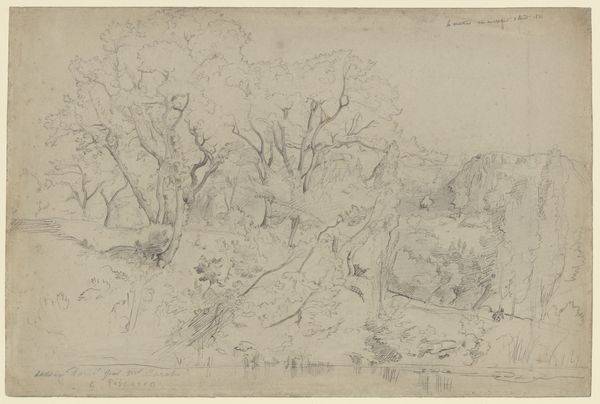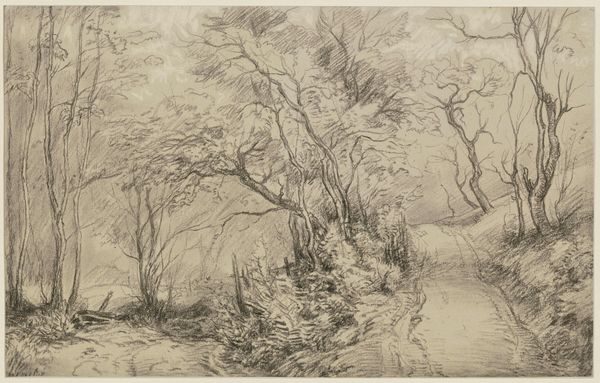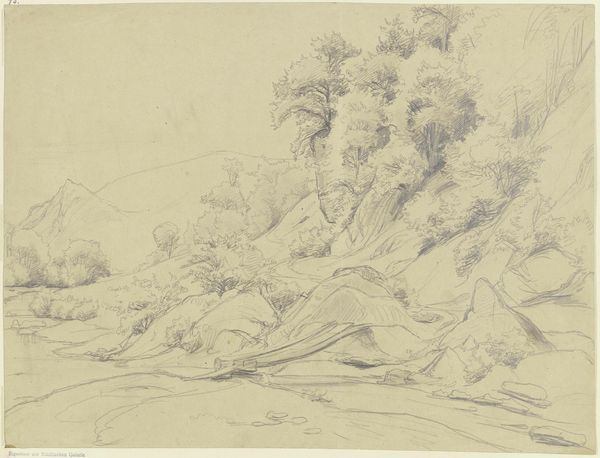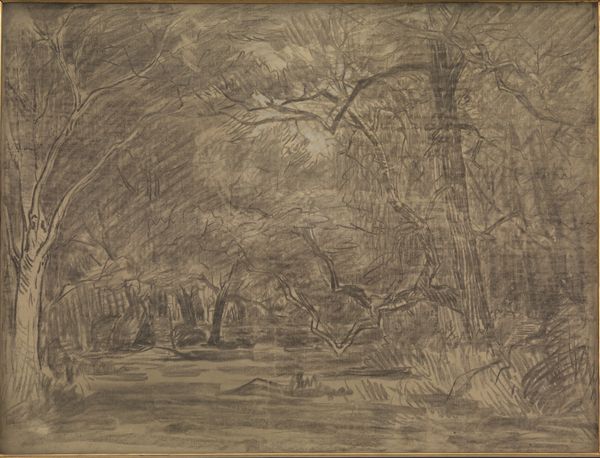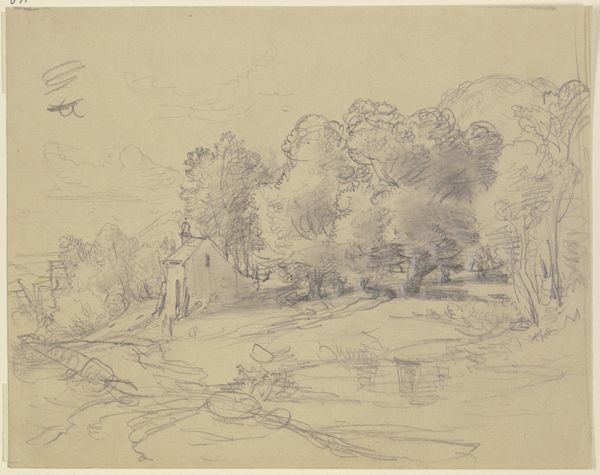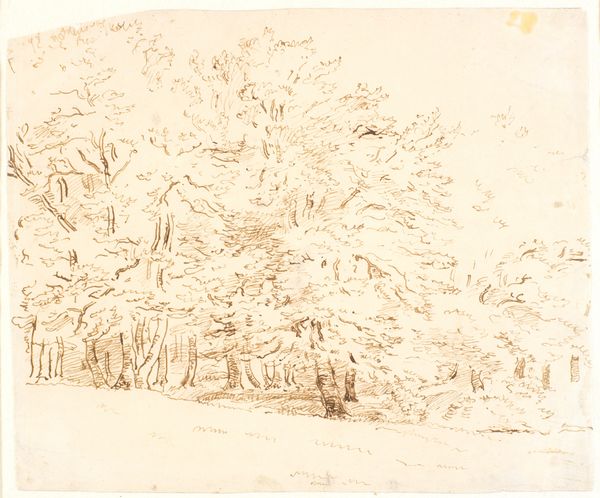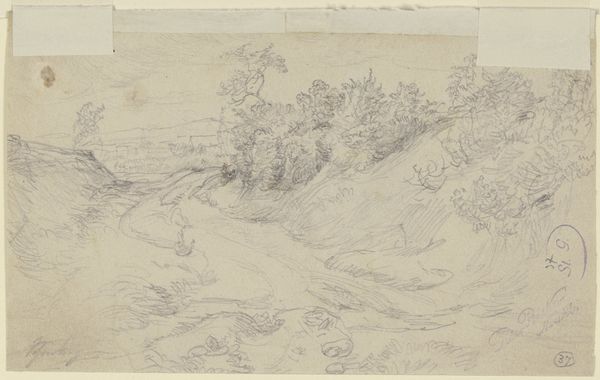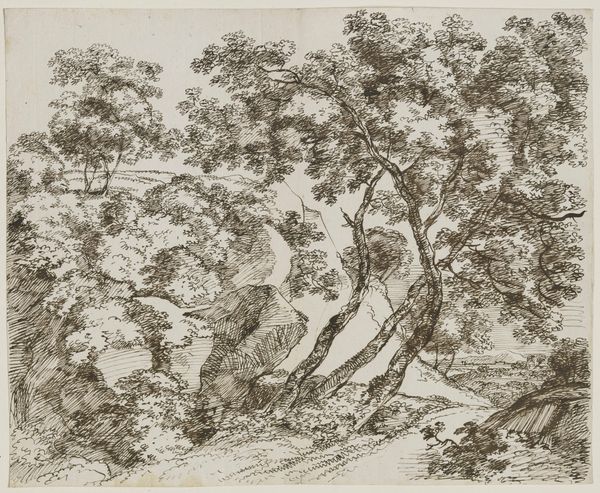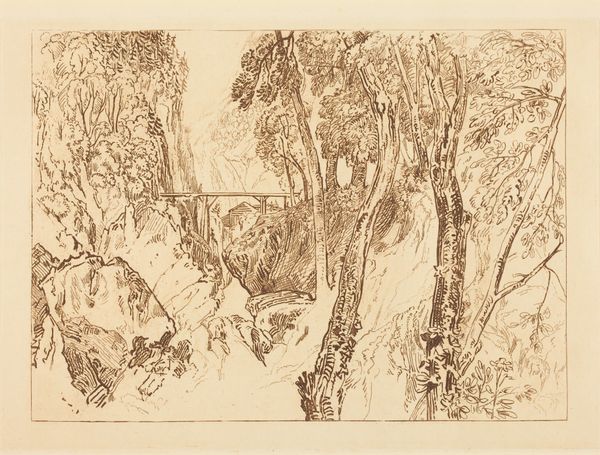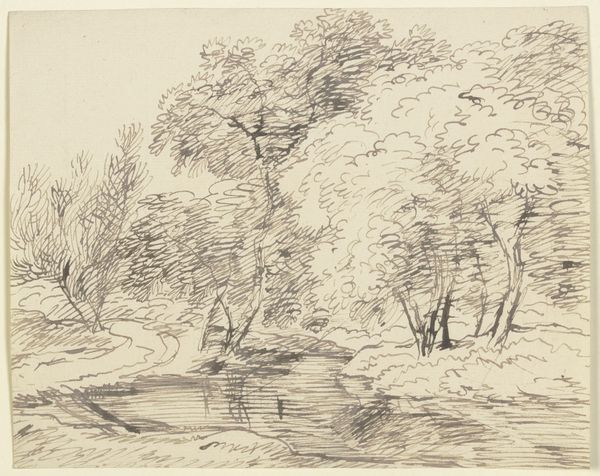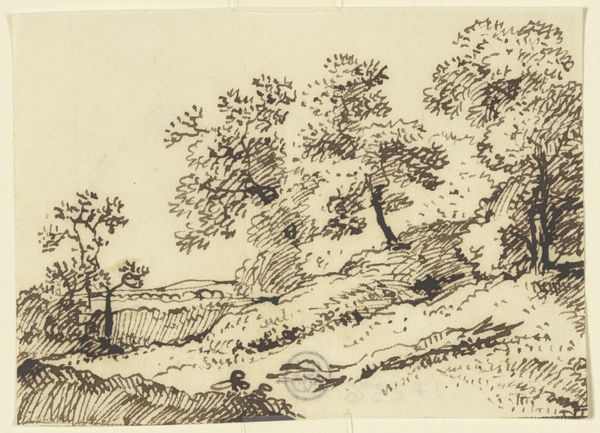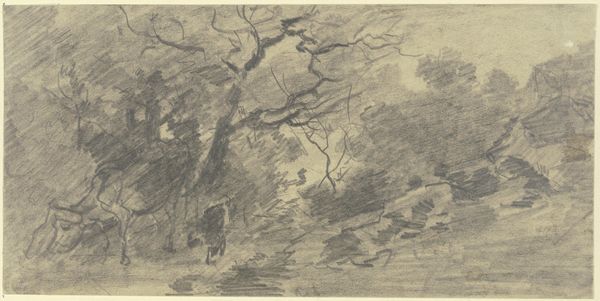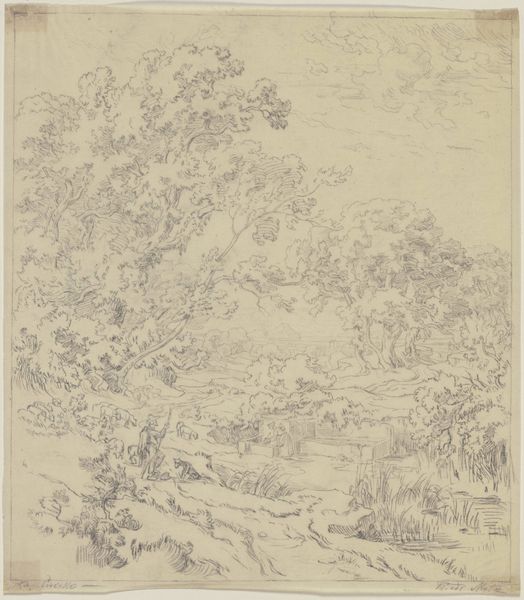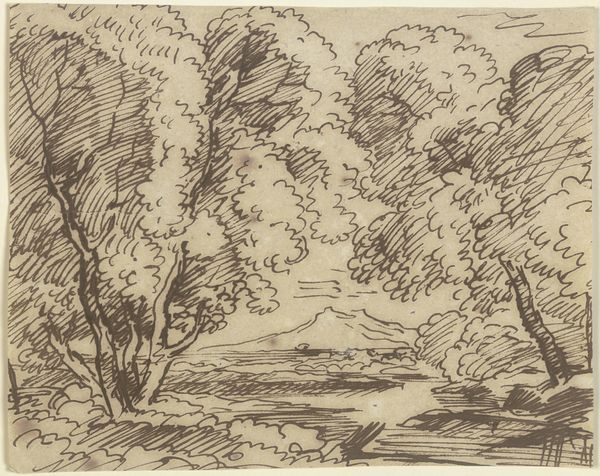
drawing, print, paper, ink, pen
#
drawing
# print
#
landscape
#
paper
#
ink
#
line
#
pen
#
realism
Dimensions: 163 × 170 mm
Copyright: Public Domain
Editor: Right, let's dive into Rodolphe Bresdin's "Bank of a Pond." It's an ink and pen drawing – the date's unknown. I’m immediately drawn to the delicate, almost frantic lines creating this serene landscape. What do you see in this piece? Curator: I see a potent commentary on man's relationship with nature. Consider Bresdin’s historical context. Living through rapid industrialization, his artistic eye might perceive the inherent conflict between the pastoral and the encroaching mechanization. The "frantic" lines, as you called them, perhaps mirror an anxiety towards environmental changes. Editor: That’s fascinating! I hadn’t considered it as a reaction to industrialization. The busyness of the lines, to me, felt more about capturing light and shadow, creating depth. Curator: Exactly, and where does light and shadow exist? They delineate power structures. Who benefits from a romanticized, passive nature, and who is excluded from it? Do the marginalized have equal access to untouched landscapes, or are these paradises guarded by societal forces? Editor: So, you’re suggesting the romanticism could be a facade, masking deeper inequalities? It's almost like a subtle critique embedded within a seemingly tranquil scene. Curator: Precisely! The landscape becomes a stage on which to examine societal imbalances and who gets to define "nature." We must challenge ourselves to unpack these complex visual narratives. What appears on the surface can betray much deeper socioeconomic realities. Editor: I am forever going to read landscapes differently now! Thank you. Curator: It is my pleasure.
Comments
No comments
Be the first to comment and join the conversation on the ultimate creative platform.
